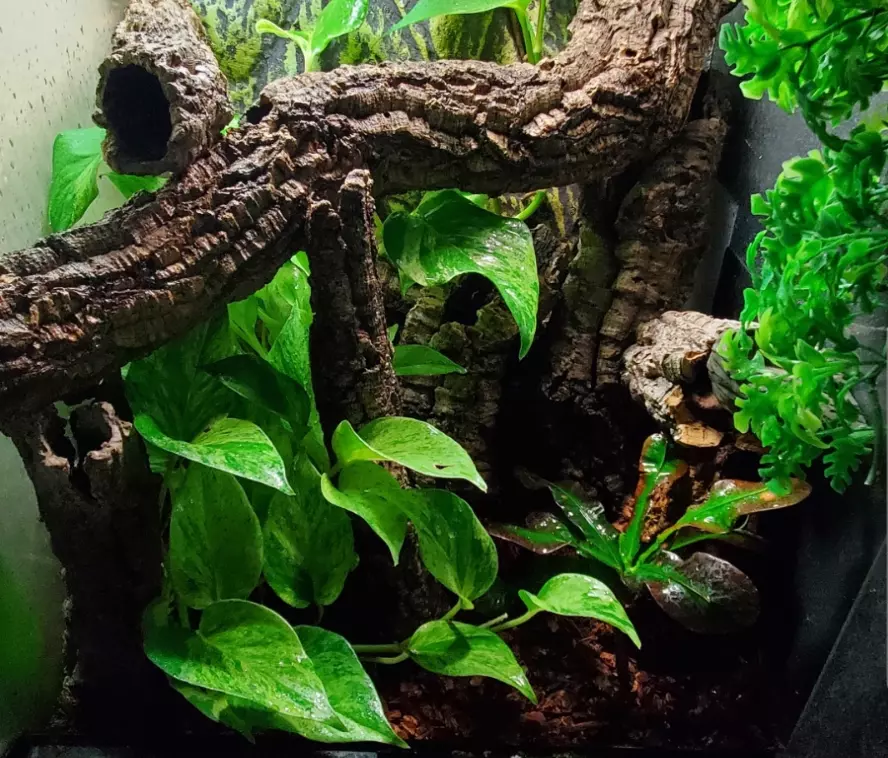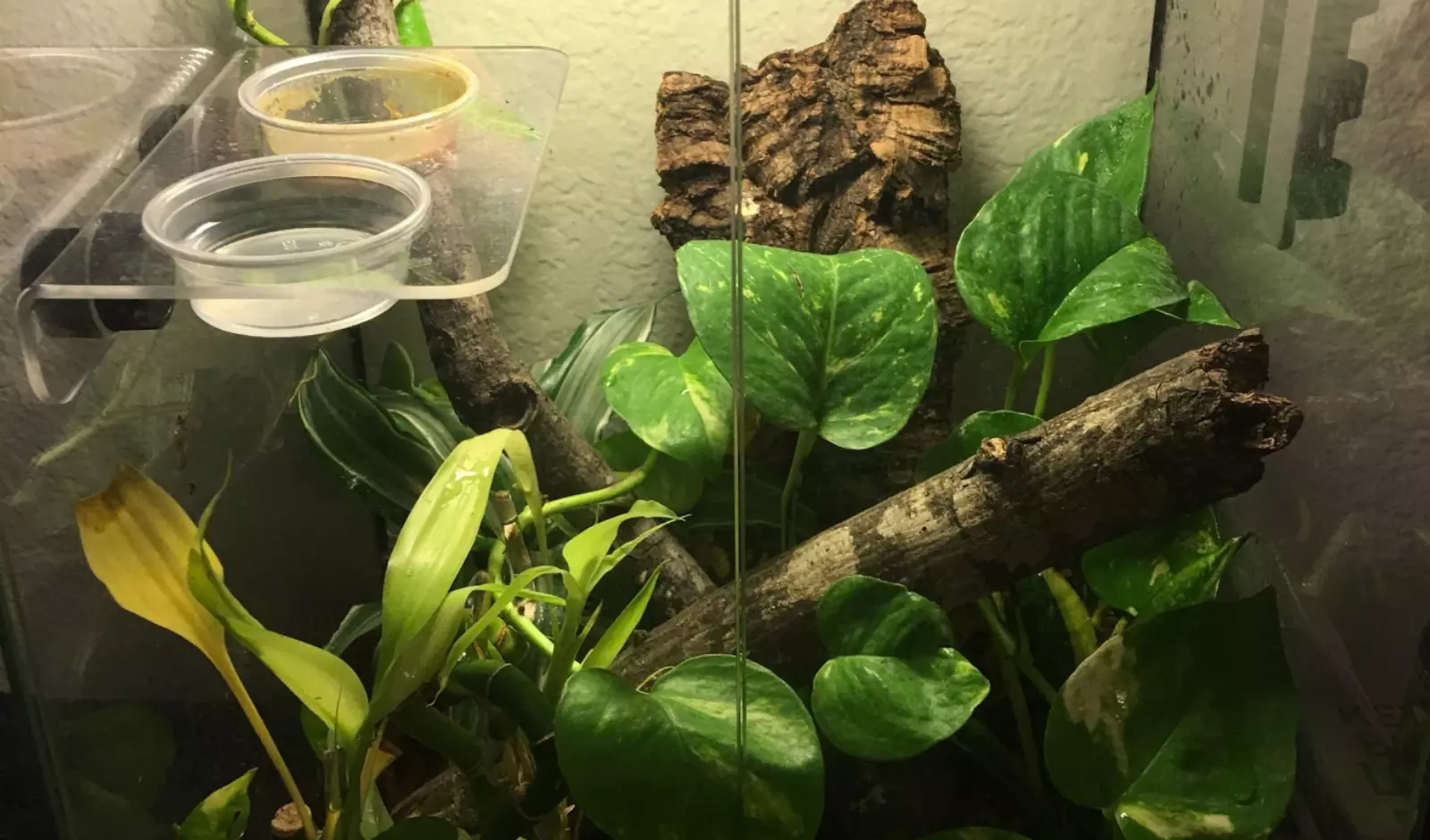Crested geckos are arboreal lizards that rely on humidity for shedding, staying hydrated, and regulating body temperature.
Without proper humidity, they may face skin problems, dehydration, and temperature issues, impacting their health.
To measure and monitor humidity in the enclosure, you will need a digital hygrometer, which is a device that shows the percentage of humidity in the air.
Place the hygrometer inside the enclosure, near the middle or the top, where the humidity is usually the highest.
Check the hygrometer at least once a day, preferably in the morning and in the evening, to see if the humidity is within the optimal range.
Also calibrate the hygrometer periodically, following the instructions of the manufacturer, to ensure its accuracy.
How to Keep Your Pet Gecko’s Home Humid?

One easy way is to use a spray bottle with plain water to mist the enclosure.
Do this twice a day, in the morning and evening, making sure the walls, substrate, and plants get a bit wet but not dripping. During shedding, mist more to give your crested gecko extra moisture.
You can also use a humidifier or fogger, which are gadgets that create a mist to raise humidity.
Place them outside the enclosure near vents, set on a timer or thermostat to control humidity. Use distilled or reverse osmosis water to avoid clogging and clean them regularly to prevent mold.
Another method is providing a water dish or a humid hide. A water dish is a shallow bowl with dechlorinated water for drinking or soaking.
Put it in a cool spot, away from heat, and change the water daily. A humid hide is a small box filled with moist materials like sphagnum moss, coconut fiber, or paper towels. Spray them every few days to keep them damp. Put the humid hide in a warm spot, near heat, and clean it weekly.
Choose the right substrate (floor covering) and plants that retain moisture.
Good substrates include coconut fiber, orchid bark, or peat moss. Plants like pothos or philodendrons work well. Avoid dry, dusty, or sharp substrates and plants, as they can lower humidity or harm your gecko.
How to Avoid Crested Gecko Humidity Problems

Keeping your crested gecko comfortable is important to prevent issues related to humidity.
If it’s too dry or too humid, your gecko could face problems like difficulty shedding, dehydration, and health complications.
Here’s what you can do:
- Monitor Humidity: Regularly check the humidity levels with a hygrometer and adjust them as needed.
- Temperature Control: Use a thermometer to keep the enclosure temperature between 72°F and 80°F. Avoid extremes, as temperatures below 65°F or above 85°F can impact humidity and your gecko’s health.
- Ventilation Matters: Ensure good air circulation in the enclosure. If it’s made of glass or plastic, create ventilation holes. Leave spaces for air to flow around the enclosure, substrate, and plants.
- Keep it Clean: Maintain cleanliness to prevent mold and bacteria. Clean the enclosure daily by removing waste and do a deep clean monthly, replacing the substrate, washing plants, and disinfecting everything. Remove any moldy items promptly.
This is must: Keep an eye on your gecko for signs of humidity issues like difficulty shedding, dry skin, lethargy, loss of appetite, or respiratory problems.
If you notice these signs, immediately consult a reptile vet.
F.A.Q.s
Q: Why is humidity important for crested geckos?
Crested geckos need appropriate humidity levels to control the amount of water they lose through their skin.
Too much or too little humidity can cause health issues, such as respiratory problems or dehydration.
Q: Do baby crested geckos have different humidity requirements than adults?
Baby crested geckos have the same humidity requirements as adults, with a regular drop to 50% followed by misting to prevent bacterial or fungal growth.
Q: What are the risks of high humidity for crested geckos?
Humidity levels beyond 80% can lead to infections, discomfort, and mold growth, which can make your gecko sick.
Q: How can I regulate humidity for my crested gecko?
You can regulate humidity for your crested gecko by misting the enclosure with warm filtered water, using automatic misters, small waterfalls, or damp substrate.
You can also improve ventilation, use dehumidifiers, or choose suitable substrates to lower humidity.


[…] the enclosure has good ventilation, and keep the temperature between 72-80°F (22-27°C) and humidity between […]
[…] recently? Like adding new decorations, introducing new tank mates, or adjusting the temperature and humidity levels? Any changes like these could stress out your gecko and make it want to hide […]